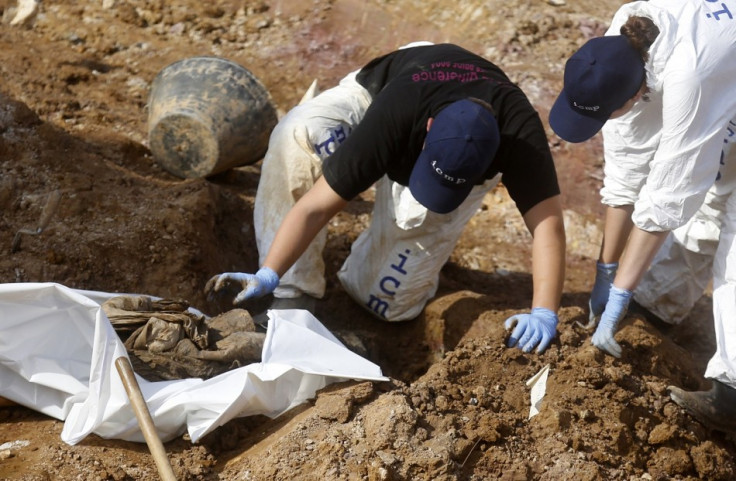Mass Grave 'Bigger than Srebrenica' Found in Bosnia's Tomasica

A mass grave containing the remains of 370 people killed during the 1992-95 Bosnian war has been uncovered at Tomasica, in Bosnia-Herzegovina.
The victims, of Bosniak and Croat ethnicity from the Prijedor municipality, were reportedly killed in the summer of 1992 by Serb soldiers during a house-to-house ethnic cleansing campaign in the nearby villages.
Some of them, however, were executed on the site as bullets in the grave demonstrate.
Searches of the 10-metre-deep grave started in early September. A total of 231 bodies have already been exhumed, along with the body parts of a further 112 people and 30 personal items.
The number of bodies is likely to go up by the day as more remains are unearthed. Forensic scientists believe the figure could top the 629 bodies found at Srebrenica, around 300km east, and some witnesses even believe 1000 bodies could be discovered.
Representatives of the Missing Person's Institute, the Interior Ministry for Bosnia and Herzegovina and the prosecutor's office are present for the dig.
"Together with the relocated ones, the number of the bodies here indicates the biggest mass grave so far found in Bosnia," the Institute's Mujo Begic said.
"We have found some identification documents in the grave, so we know who these people are."
About 9,000 people from the conflict are still missing.
Ambassador Peter Sorensen, head of the European Union delegation to Bosnia and Herzegovina, said: "Their families have the right to know what happened to their missing relatives.
"Governments, military authorities and former armed groups have an obligation to provide all the relevant information they hold, and assist in efforts to put families back together."
The UN-backed International Criminal Tribunal for the former Yugoslavia has continued to prosecute war crimes perpetrated during the conflict.
Former Bosnian Serb leader Radovan Karadzic, accused of genocide, crimes against humanity and war crimes, remains on trial along with Bosnian Serb leder Ratko Mladic, Croatian Serb rebel leader Goran Hadzic and Vojislav Seselj.
© Copyright IBTimes 2025. All rights reserved.






















